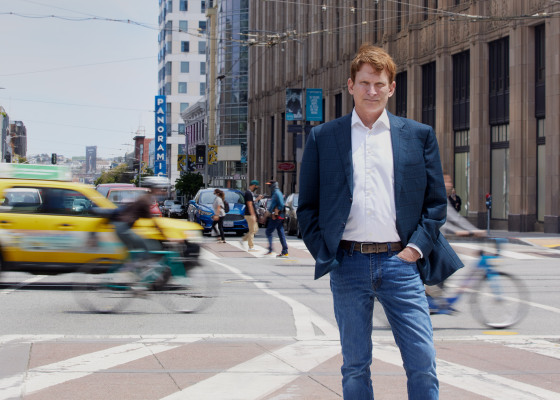Lacuna Applied sciences, a startup that helps cities create and implement transportation insurance policies by constructing and managing open-source digital instruments, has raised $16 million in a Sequence A spherical, bringing the corporate’s complete funding to $33.5 million.
For the reason that startup was based in 2018, Lacuna has invested in serving to cities like Los Angeles, Seattle and Miami construct digital twins, or software program fashions of actual world cities – together with all types of mobility from supply to rideshare to drones to common visitors. Metropolis planners and transportation businesses can use these fashions to watch the present setting and implement new laws, in addition to run simulations to offer a clearer image of how sure insurance policies might tackle congestion, air pollution, accessibility and security.
With the recent money, Lacuna CEO Hugh Martin says the corporate is specializing in increasing to new markets and constructing out the functions that may be positioned on prime of the digital twins, like adjusting freight or supply curb parking charges to mirror demand or placing a cap on the variety of drones allowed down a given avenue per day. Meaning first hiring new engineering groups to construct digital twins and join functions in an effort to assist cities get income flowing.
“The federal authorities collects billions of {dollars} in gasoline taxes, which is basically used to fund departments of transportation on the federal, state and native ranges, and that’s headed for zero,” Martin informed TechCrunch. “What are we going to do? The gasoline tax has been a very good proxy, however we have to discover a new solution to successfully monetize the general public proper of manner, in addition to get management of it. And I outline the general public proper of manner as not simply 2D, however 3D. The place are the drones going to fly, the place are the aerial taxis going to take off and land and the way is town going to speak coverage to these units in actual time?”
Whereas cities give attention to actual world public proper of manner, together with all the road connections, velocity limits and parking guidelines, Martin says new mobility firms like Uber or FedEx are build up digital fashions of cities and working their companies on prime, and town has no manner of accessing them.
“What can be tremendous highly effective is that if as an alternative of simply having the bodily world, town has a digital copy of itself, with digital insurance policies that would then be utilized by all operators,” mentioned Martin.
Moderately than utilizing historic knowledge to plan out cities, Martin says Lacuna’s providers have a extra operational focus. For instance, Waze routes vehicles based mostly on congestion utilizing its personal digital twin. This may trigger lots of of vehicles to go down slightly aspect avenue when the freeway is clogged up, which could annoy those that reside there. If town had a digital twin, it might assess the width of the road, whether or not it’s residential or industrial and the velocity restrict, and put a cap on the variety of vehicles Waze can reroute down that avenue, thus preserving high quality of life for these residing on that avenue.
“Our goal is to offer cities the instruments they want in order that they will use their authority to ensure that the customers of the general public straight away are compliant with no matter their coverage is,” mentioned Martin.
In Los Angeles, for instance, Lacuna constructed a system to assist LA handle its scooter fleets again in 2019.
“Venice Seashore was a large number, there have been scooters all around the boardwalk and the seaside and being thrown within the water,” mentioned Martin. “So we helped LA set up a geofence 200 toes off the boardwalk. LA gave scooter operators a two month grace interval, however warned them if on the finish of these two months, if riders cross that geofence, town would begin decreasing the entire variety of items every operator might have on the streets.”
To make sure observance, town council rewrote the regulatory language for getting a scooter allow, requiring operators to be compliant with town’s mobility data specification program, which means operators must transmit and obtain info digitally.
“Now, it’s evening and day,” he mentioned. “The scooters are all lined up 200 toes away from the boardwalk. And what was superb for town is that it was simply 15 traces of code. They didn’t must put a bunch of officers out, put indicators up, write tickets.”
This spherical was led by Xplorer Capital Administration, and contains Playground International, the corporate’s founding investor. Together with the funding information Lacuna is asserting the addition of Keith Nilsson, MP and co-founder of Xplorer, to the corporate’s board.







